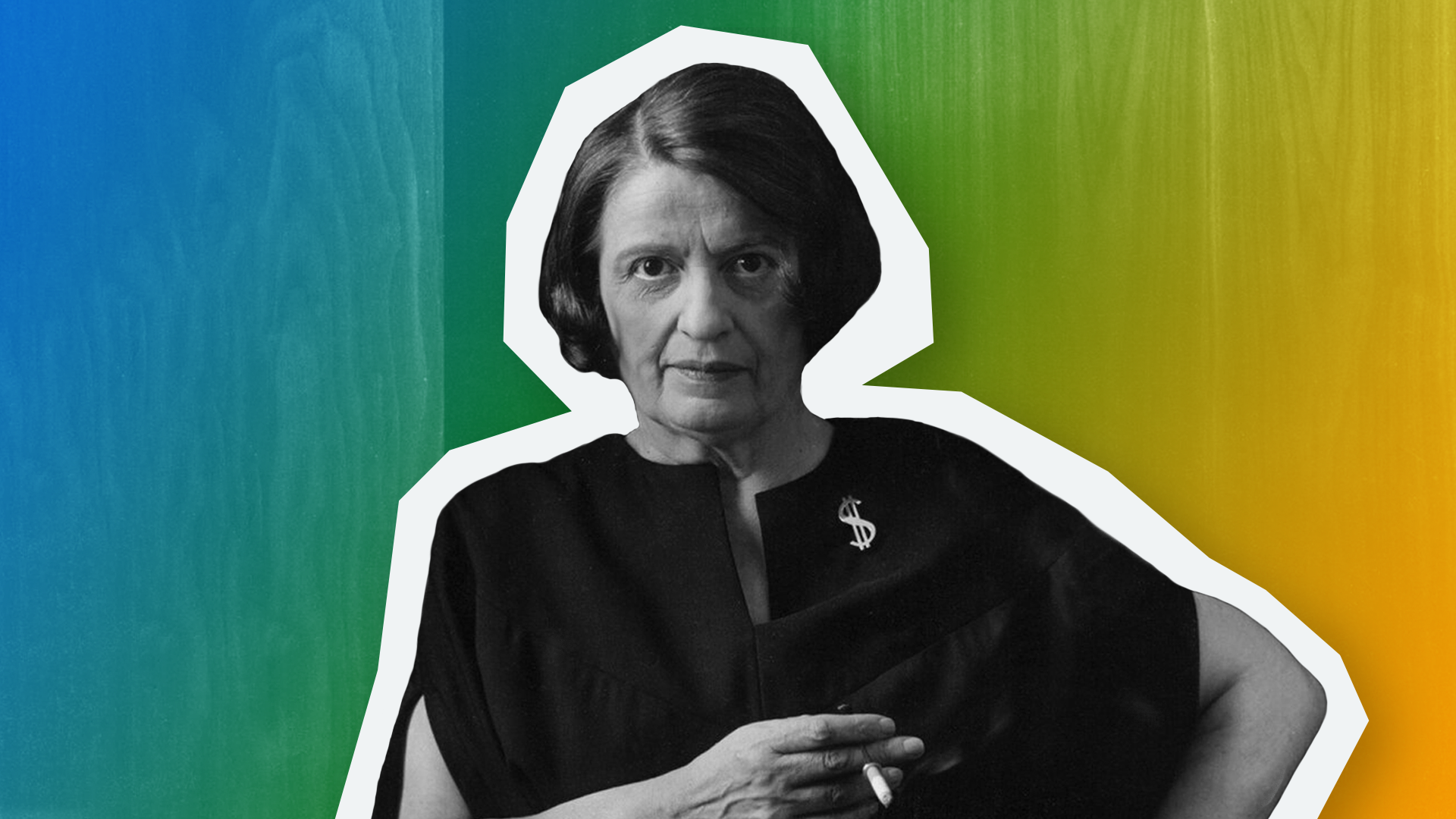Tag: individualism


Getting The Whole Story – Whole Foods Co-founder John Mackey Tells It All
July 8, 2024 | Post
Discover the incredible journey of John Mackey in his new autobiography, The Whole Story.

Does the Freedom of Your Nation Set You Free?
May 28, 2024 | Post
In fact, the Italian embassy’s denial of Bangladeshi chess players’ visas for a recent tournament reveals how national “freedom” can actually restrict personal freedoms.

Stop complaining, start building: why Ayn Rand is so popular among entrepreneurs and high achievers
March 29, 2024 | Post
For people of a certain mindset and ambition, Ayn Rand’s ideas serve as a beacon of empowerment, urging them to stop complaining and instead focus on what they can do to build their own destinies.
Let’s look at some of the reasons why entrepreneurs and high achievers are a particularly receptive audience to the ideas of Ayn Rand.

Anthem: a gateway to the genius of Ayn Rand
March 14, 2024 | Post
Today, 86 years on from its original publication, Anthem stands firm as a testament to the enduring power of the human spirit and the eternal flame of individualism.

Why we should celebrate capitalism and consumerism, at Christmas and all year
December 7, 2023 | Post
Last Christmas, Pope Francis criticized holiday consumerism, saying that ours is “a society often intoxicated by consumerism … wealth and extravagance.”
To understand why this sort of critique is mistaken, and why consumerism and capitalism deserve our love at Christmastime and throughout the year, we need to go back to basics.

Socialism is immoral. This Soviet refugee tells us why
October 20, 2023 | Post
The most compelling case for why socialism is immoral comes from someone with first-hand experience. This is the story of a Soviet refugee, one whose experiences and insights lay bare a truth that challenges the very foundations of socialism.

7 controversial life lessons that shouldn’t be controversial
September 25, 2023 | Post
Intrigued about a fresh take on personal growth and self-discovery that emphasizes individualism, liberty, and rational self-interest? Let’s take a look at 7 controversial life lessons that really shouldn’t be controversial at all…

What Elizabeth Bennet taught me about liberty
September 14, 2023 | Post
Elizabeth Bennet, the protagonist in Jane Austen’s Pride and Prejudice, stands out because of her unconventional views on education and marriage, challenging the staunchly patriarchal society of Georgian England. Here’s what her story can teach us about liberty…

How immigration creates a more prosperous world
August 23, 2023 | Post
Immigration has been a huge driving force behind creating America as we know it today. Without immigrants, or with far fewer immigrants, it would be impossible to imagine the United States developing into the world’s dominant economic powerhouse as it did. Opposition to immigration has been allowed to gradually place the American dream out of reach for so many ambitious individuals and deprive the country of further potential in the process.

How classical liberalism played a crucial role in advancing LGBTQ+ rights
June 28, 2023 | Post
Classical liberalism, with its emphasis on individual liberties and limited government intervention, has played a crucial role in advancing the rights of the LGBTQ+ community throughout history.
By advocating for principles such as individual liberty, reason, fundamental rights, and equal treatment under the law, classical liberal ideas have challenged societal norms, fought against oppression, and paved the way for greater acceptance and inclusion.

Who was Ayn Rand?
February 27, 2023 | Post
Ayn Rand, a celebrated author and philosopher, was one of the most influential thinkers of the 20th century. Known for her bestselling novels, such as The Fountainhead and Atlas Shrugged, Rand’s ideas have had a profound impact on the fields of politics, economics, and philosophy.

How gay pride is a celebration of liberty
December 23, 2022 | Post
Every time someone does not conform to what is attempted to be imposed on them; those people are celebrating pride in being themselves. That’s why gay pride is so special. It is resistance against those who do not love the freedom of others.

The dangerous simplicity of polarization
December 12, 2022 | Post
We cannot claim to want a better and more tolerant world while simultaneously creating distance between ourselves and those with whom we disagree. To overcome the exercise in collective insanity that is political polarization, we must separate the politics from the individual.

Why cosmopolitanism is essential to liberty
November 23, 2022 | Post
Cosmopolitanism is the belief in universal human rights, regardless of time or place. That each of us is a citizen of the world first, country second. It also denotes a law and morality that transcends all, and must be applied to everyone equally. But cosmopolitanism is more than just a recognition of the universal rights of others.

Self-ownership and libertarianism: we must fully own ourselves to be free
March 31, 2022 | Post
Self-ownership is a key concept in libertarian ideology. It means exactly what it sounds like: the idea that every person owns themselves.

Anne Hutchinson: The spirit of religious liberty
March 27, 2017 | Post
Opinions of Anne Hutchinson have, shall we say, covered the waterfront. In his masterful tome, Conceived in Liberty, 20th-century economist and libertarian historian Murray Rothbard cast her as a staunch individualist and the greatest threat to the “despotic Puritanical theocracy of Massachusetts Bay.” John Winthrop, the 2nd, 6th, 9th, and 12th governor of the Massachusetts […]

Was Jeremy Bentham a Classical Liberal at heart?
February 15, 2017 | Post
Jeremy Bentham was born on Feb. 15th, 1748, in Spitalfields, England. One of the main early advocates of utilitarianism — the ethical view that, roughly, an act is right insofar as it promotes happiness, and wrong insofar as it does not — he is best known for his view that “it is the greatest happiness […]

Immanuel Kant: Philosopher of Freedom
February 2, 2017 | Post
Kant was self-consciously an Enlightenment liberal who believed in limited government and maximum freedom.

We need less politics and more private governance
January 26, 2017 | Post
One of the most important things we can do is really explain and understand how markets, not government intervention, are our best hope for an orderly and prosperous society.

Liberalism reconstructed for a world divided
December 31, 2016 | Post
So 2016 is limping to an end with an assassination of an ambassador, another “inspired” attack on innocents at a Christmas market, and the formal election of a master crony-capitalist to the office of the presidency of the United States.

13 books every well-rounded libertarian should read
December 27, 2016 | Post
There are books that every libertarian should read and books every libertarian has read, but those circles don’t perfectly overlap. Here are 13 diverse book recommendations for well-rounded thinkers.

3 libertarian takeaways from South Park season 20 (SPOILERZ)
December 14, 2016 | Post
While the singing Christmas turds of seasons past will always be funny, it is South Park’s growing, full-throated defense of liberal values like free expression, privacy, anti-authoritarianism, and individualism that will forge its larger legacy.

A hero is worth 1,000 words
November 12, 2016 | Post
Truly virtuous behavior cannot be compelled. Demonstrating virtue and consequently inspiring people to be virtuous is a fundamental and necessary component of a free society.


